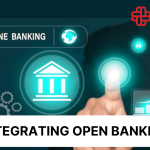Understanding the underlying financial rules and regulations is essential for any business to protect itself from financial risk. Islamic financial systems differ slightly from conventional borrowing, lending, and capital management systems.
They follow the Islamic financial law known as Shari’a Law. Financial systems, including accounting, banking, investment firms, and insurance companies, must ensure that their policies and procedures comply with Shari’a Law when making financial changes and decisions.
As the requirements for Shari’a Law within financial institutions are growing, it’s important to understand the changes and developments and how these could affect your business or way of working.
Shari’a law has some very strict nuances, and adhering to these guidelines, especially when dealing with companies overseas, is essential to minimising the risks to your business and securing your financial position for the future.
Upon completion of this course, participants will be able to:
- Understand internal bank management regarding Islamic Law.
- Develop an understanding of key terminologies associated with Shari’aLaw.
- Create contingency plans to avoid the risks of Shari’a Law financing.
- Discuss the history and potential future of Islamic banking methods.
- Develop a working knowledge of the financial products and tools associated with Islamic banking.
- Learn about Shari’a oversight and supervisory boards.
- Understand the functions and governance methods of Islamic banking.
This course is designed for anyone who wishes to gain a deeper knowledge and understanding of Islamic banking and capital management. It would be most beneficial for:
- Business Owners
- Bank Managers
- Operations Managers
- Chief Financial Officers
- Investors
- Accountants
- Risk Assessors
- Auditors
- Banking Professional Issuing Sukuk
- Sukuk Investors
- Treasurers
This course uses various adult learning methods to aid full understanding and comprehension. Participants will review case studies to understand the differences between conventional and Islamic financing. They will have the most modern tools and products to ensure correct financial management under Shari’a Law.
Participants will hold group discussions to understand the risk areas and potential problems that may arise under Shari’a Law. Together, they will discuss potential solutions and developments within their organisation.
Day 5 of each course is reserved for a Q&A session, which may occur off-site. For 10-day courses, this also applies to day 10
Section 1: Islamic Banking Methodology
- Institutionalised Islamic financing.
- Theoretical foundations under Islamic law.
- The history of Shari’a law.
- The objective reasoning for Shari’a law.
- Banking without riba and the challenges it presents.
- Islamic business models.
- The ‘non-banking’ model.
- Retail banking vs. wholesale and investment banks.
- Muslim and non-Muslim attitudes to Islamic banking.
- The challenges with mixing Islamic banking with conventional banking methods.
- Liquidity management problems and solutions.
Section 2: The Functions, Products, & Services
- Handling deposits.
- Talking about trade financing options.
- Corporate finance across various industries.
- Agriculture and the Shari’a requirements.
- Consumer vs. investor.
- Islamic treasury management.
Section 3: Balance Sheets & Social Utility Management
- Asset management without lending.
- Asset side and liability side funding.
- Accounting difficulties when managing across conventional and Islamic banking methods.
- Economic distinctions.
- Qard - interest-free loans.
- Charity investment and donations.
- Zakat - religious tax implications.
Section 4: Governance & Regulations
- Capital development and adequacy.
- Identifying and managing risk areas.
- Accurate reporting methods.
- Disclosure and recording of funding problems.
- Utilising central banking support methods.
- Adapt your policies and procedures to fit Shari’a law.
- How to maintain your compliance.
- Regulating your operation.
Section 5: Shari’a Oversight
- Supervisory board roles and purpose under Shari’a.
- Compliance and Shari’a advisory access.
- Specialist Shari’a auditors and why they are important.
- British laws surrounding Shari’a.
- Challenges with managing Islamic banking in a non-Muslim country.
- Managing your reputation externally.
Section 6: The Future of Your Investments Under Islamic Law
- What does the future hold for Shari’a law?
- Issues and developments with overseas investments.
- How to manage Islamic banking methods within a non-Muslim organisation.
- Large organisation development across the globe.
- Finding innovative solutions to money loss and recovery.
- How could Shari’a law be a detriment to the business, and how can this be avoided?
- Training and management of banking and accounting professionals.
Upon successful completion of this training course, delegates will be awarded a Holistique Training Certificate of Completion. For those who attend and complete the online training course, a Holistique Training e-Certificate will be provided.
Holistique Training Certificates are accredited by the British Assessment Council (BAC) and The CPD Certification Service (CPD), and are certified under ISO 9001, ISO 21001, and ISO 29993 standards.
CPD credits for this course are granted by our Certificates and will be reflected on the Holistique Training Certificate of Completion. In accordance with the standards of The CPD Certification Service, one CPD credit is awarded per hour of course attendance. A maximum of 50 CPD credits can be claimed for any single course we currently offer.
- Course Code IND12-106
- Course Format Classroom, Online,
- Duration 5 days














